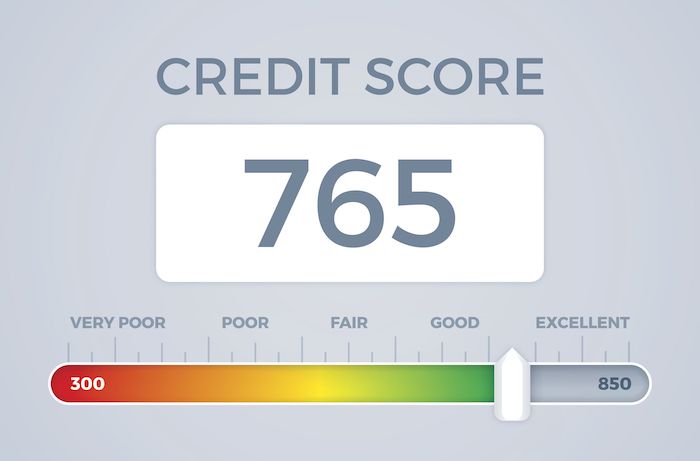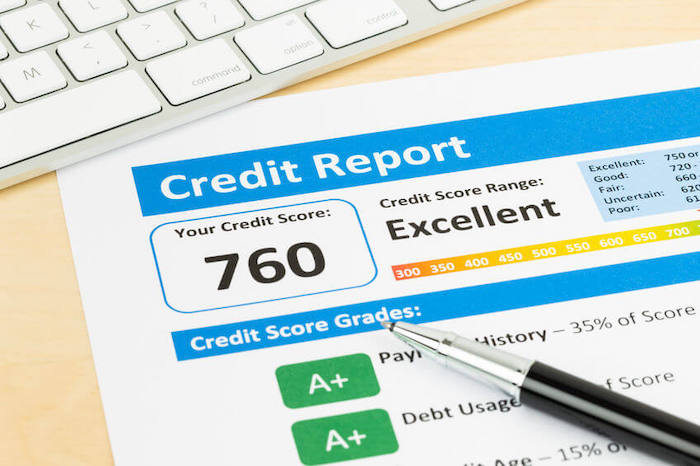A good credit score is essential for many financial activities, such as getting a loan, applying for a credit card, or renting an apartment. Unlocking the Secrets of Credit Scores: Why You Should Aim for a High Score is a guide to understanding the basics of credit scores and how to improve them. Learn why having a high credit score is important, what goes into calculating your score, and how to increase it. With this knowledge, you can take the necessary steps to ensure your credit score is as high as possible.
Understanding How Credit Scores Are Calculated
Understanding how credit scores are calculated is important in managing your finances. Lenders use credit scores to assess the risk of lending money to an individual. A good credit score is important for getting approved for loans, mortgages, and other types of credit.
Credit scores are calculated using a variety of factors, including payment history, credit utilization, length of credit history, types of credit, and recent credit inquiries. Payment history is the most important factor, making up 35% of a credit score. This includes whether payments are made on time and in full. Credit utilization is the second most important factor, making up 30% of a credit score. This is the amount of credit being used compared to the amount available. The longer the credit history, the better the score, making up 15%. Types of credit make up 10% of the score, which includes a mix of instalment loans, such as mortgages and car loans, and revolving credit, such as credit cards. The last 10% of the score is based on recent credit inquiries, including any new credit applications.
By understanding how credit scores are calculated, you can take steps to improve your score. This includes making all payments on time and in full, keeping credit utilization low, and avoiding unnecessary credit inquiries. With a good credit score, you can get approved for loans and other types of credit more easily.
The Benefits of Maintaining a High Credit Score
Having a high credit score is essential for many reasons. A good credit score indicates financial responsibility and can open the door to many opportunities. Here are some of the benefits of maintaining a high credit score:
1. Lower Interest Rates: A high credit score will help you qualify for lower interest rates on loans and credit cards. This can save you hundreds or even thousands of dollars in interest payments over the life of the loan.
2. Easier Access to Credit: A high credit score makes getting approved for loans and credit cards easier. Lenders are more likely to approve applications from borrowers with good credit scores.
3. Lower Insurance Premiums: Insurance companies use credit scores to determine how much to charge for premiums. People with higher credit scores are often offered lower rates.
4. Better Job Opportunities: Many employers now use credit scores in hiring. A high credit score can give you an edge over other applicants.
5. More Negotiating Power: A high credit score can give you more negotiating power regarding loan terms. Lenders are more likely to offer better terms to borrowers with good credit scores.
Maintaining a high credit score is essential for many reasons. It can save you money on interest payments, make getting approved for loans and credit cards easier, and even help you get a better job. Taking the time to build and maintain a good credit score is an investment that can pay off in the long run.
Strategies for Improving Your Credit Score
Having a good credit score is important for many reasons. It can affect your ability to get a loan, the interest rate you will pay, and even your ability to rent an apartment. Improving your credit score can take time, but there are several strategies you can use to help improve your score.
Reviewing your credit report is the first step in improving your credit score. This report will list your credit accounts, including any late payments or collections. Make sure all of the information is accurate and up to date. If there are any errors, contact the credit bureau to have them corrected.
Once you have reviewed your credit report, you can start taking steps to improve your credit score. One of the most important things you can do is make your payments on time. Late payments can harm your credit score, so make sure you pay your bills on time.
You should also try to reduce your debt. If you have a lot of credit card debt, consider consolidating it into one loan with a lower interest rate. This will help you pay off your debt faster and improve your credit score.
Another strategy for improving your credit score is to use credit responsibly. Don’t open too many new accounts or take out too many loans. Instead, focus on using your existing accounts responsibly. Make sure you pay off your balance in full each month, and don’t use more than 30% of your available credit.
Finally, be patient. Improving your credit score takes time, so don’t expect to see results overnight. Keep up with your strategies, and you should see your credit score improve over time.
Common Misconceptions About Credit Scores
When it comes to credit scores, many misconceptions can lead to confusion and even financial trouble. It’s important to understand the truth behind these misconceptions so that you can make informed decisions about your credit.
One of the most common misconceptions about credit scores is that they are the same as credit reports. While credit reports and scores are related, they are different. Credit reports are a detailed record of your credit history, including your payment history, credit accounts, and any negative items. On the other hand, credit scores are numerical representations of your creditworthiness based on the information in your credit report.
Another misconception is that having a high credit score means you have a good credit history. While a high credit score is generally a good sign, it’s important to remember that it’s only one factor in determining your creditworthiness. Your payment history, credit utilization, and other factors all affect your credit score.
It’s also a common misconception that closing a credit card account will improve your credit score. Closing a credit card account can harm your credit score. This is because closing an account can reduce your available credit, lowering your credit utilization ratio and negatively affecting your score.
Finally, many people mistakenly believe that their credit score is determined solely by their income. While income can be a factor in determining your creditworthiness, it’s not the only factor. Your payment history, credit utilization, and other factors all play a role in determining your credit score.
Understanding the truth behind these common misconceptions about credit scores can help you make informed decisions about your credit. By understanding the factors that affect your credit score, you can take steps to improve your credit and build a strong financial future.
How to Monitor Your Credit Score and Report Changes
Monitoring your credit score and report is an important part of maintaining your financial health. It is important to be aware of changes in your credit score and report so that you can take steps to address any issues that may arise. Here are some tips on how to monitor your credit score and report changes.
First, you should review your credit report regularly. You can get a free copy of your credit report from each of the three major credit bureaus (Equifax, Experian, and TransUnion) once a year. Reviewing your credit report can help you identify any errors or inaccuracies that may be affecting your credit score. If you find any errors, you should contact the credit bureau to have them corrected.
Second, you should sign up for a credit monitoring service. These services provide regular updates on your credit score and report, alerting you to any changes or potential problems. Many of these services also offer additional features, such as identity theft protection and credit score simulators.
Third, you should review your credit card statements and other financial accounts regularly. This will help you identify any suspicious activity or unauthorized charges. If you find any suspicious activity, you should contact your credit card company or financial institution immediately.
Finally, you should be aware of any changes in your credit score. Your credit score is based on a variety of factors, including your payment history, credit utilization, and length of credit history. If you notice any in your credit score, you should investigate the cause and take steps to address any issues.
Monitoring your credit score and report is an important part of maintaining your financial health. By following these tips, you can ensure that your credit score and report remain accurate and up-to-date.
FAQS
Q: What is a credit score?
A: A credit score is a three-digit number that is calculated based on your credit history. It is used by lenders to determine your creditworthiness and the likelihood of you paying back your debts.
Q: Why is it important to have a high credit score?
A: Having a high credit score can give you access to better interest rates and loan terms. It can also make it easier for you to get approved for credit cards, loans, and mortgages.
Q: How is a credit score calculated?
A: Credit scores are calculated based on several factors, including your payment history, credit utilization, length of credit history, types of credit used, and recent credit inquiries.
Q: What is considered a good credit score?
A: Generally, a credit score above 700 is considered good, while a score above 800 is considered excellent. However, different lenders may have different criteria for what they consider a good credit score.
Q: How can I improve my credit score?
A: You can improve your credit score by making on-time payments, keeping your credit utilization low, maintaining a long credit history, diversifying your credit mix, and minimizing new credit inquiries.
Q: How long does it take to improve a credit score?
A: Improving your credit score can take time, as it depends on your individual credit history and current credit status. However, making consistent efforts to improve your credit habits can result in gradual improvements over time.
Q: Can I check my credit score for free?
A: Yes, you can check your credit score for free from various credit reporting agencies. It’s important to regularly check your credit score and report to ensure accuracy and to detect any potential fraud or identity theft.
Q: How often should I check my credit score?
A: It’s recommended to check your credit score at least once a year, but it can be beneficial to check more frequently if you are actively working on improving your credit or if you are applying for credit.




